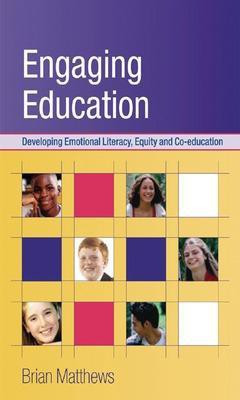Engaging Education: Developing Emotional Literacy, Equity and Coeducation 1st Edition(English, Paperback, Matthews Brian)
Quick Overview
Product Price Comparison
"Brian Matthews brings intellectual rigour as well as passionate commitment to the important tasks of appreciating the role that emotional literacy can play in a refreshing education. It is a powerful combination. It is because he understands so well the need to attend to the purpose of education that he is so illuminating on the strategies that will give all young people the best possible chance to learn and to grow." James Park, Director, Antidote "This book will be read by individuals who have an interest in bringing about change in the presentcurriculum. School Science Review This book reveals the huge potential of engaging pupils with their emotions in the classroom, and presents evidence that when pupils work in this way they become more co-operative and help each other to learn. The book explores how schools can move beyond a focus on cognitive attainment through an emphasis on affective engagement, to help pupils develop better relationships of all kinds and prepare them for adulthood in a fast-changing world. For teachers, the book tackles the important questions of: What is emotional literacy and emotional intelligence? How can teachers incorporate pupils' emotional development into their lessons while nourishing and enhancing achievement? How is it possible to have a calm atmosphere in the classroom with pupils enjoying learning together? Engaging Education is the first book to link the issues of emotional literacy, equity and social justice, and the education of the whole child, thus providing the social and political context for emotional literacy. In connecting emotional literacy and equity with the structure of schooling, it establishes that co-educational schools can contribute to enabling boys and girls to relate to and understand each other. Based firmly on research, this innovative book gives teachers invaluable guidelines on what to concentrate on and what to avoid. It is key reading for teachers and trainee teachers as well as policymakers and all those concerned with education.


